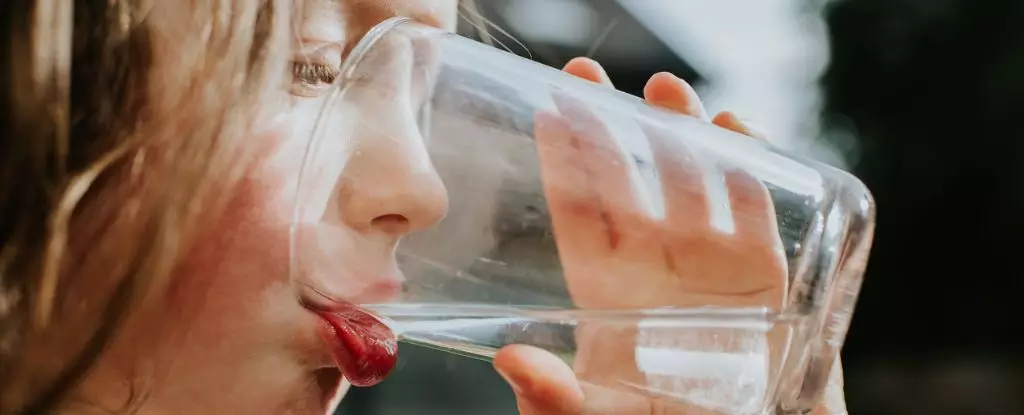The menace of plastic pollution is a growing concern, not only for the environment but also for human health. Recent studies have revealed that microplastics and nanoplastics are infiltrating our water sources, raising alarm bells about the potential risks they pose to our well-being. While the exact impact of these tiny plastic particles on human health remains uncertain, the fact that we are unwittingly ingesting them with every sip of water is enough to cause unease.
To address the pressing issue of plastic pollution in water, researchers at the University of Missouri have developed an innovative and potentially sustainable method to remove microscopic plastic pollutants. By utilizing natural liquid ingredients with low toxicity, the team has successfully demonstrated the ability to eliminate approximately 98 percent of nanoscopic polystyrene beads from both fresh and saltwater sources.
The engineered solvent created by the researchers behaves akin to oil, floating on the surface of water. A simple mix of this liquid with the contaminated water results in the effective capture of microscopic plastics, which are then carried to the surface. By carefully extracting the top layer of liquid using a pipette, the researchers were able to remove nearly all nanoplastic beads from the water samples, achieving a remarkable extraction rate of 99.8 percent in saltwater.
The proof of concept developed at the University of Missouri indicates a cost-effective and potentially sustainable approach to combating nanoplastic pollution. The researchers believe that with further refinement, this technique could also be instrumental in removing other pollutants, such as forever chemicals, from water sources.
Studies have shown that tap water and bottled water contain a significant number of microscopic plastic particles, particularly nanoplastics that are less than a micrometer in size. The widespread presence of these non-biodegradable entities in natural ecosystems, including rivers, drainage networks, and even remote locations such as the deep sea and mountain lakes, underscores the urgent need for effective mitigation strategies.
Nanoplastics have the potential to disrupt aquatic ecosystems and enter the food chain, posing risks to wildlife and human health. Furthermore, these tiny plastic particles can serve as carriers for harmful chemicals like heavy metals and flame retardants, which could have adverse effects on biological systems. The challenge of removing nanoplastics from the environment is formidable, requiring innovative solutions to address the scale of contamination.
While some methods, such as boiling tap water, have shown efficacy in removing nano- and microplastics, they may not be suitable for large-scale water bodies. The new technique developed at the University of Missouri offers a more scalable and efficient solution to tackle nanoplastic pollution. By using a designer solvent to absorb plastic particles from water on a large scale, this approach has the potential to revolutionize the fight against microplastic contamination.
The battle against microplastic pollution is far from over, but the development of sustainable and effective solutions, such as the innovative technique devised by researchers at the University of Missouri, offers hope for a cleaner and healthier future. It is imperative that we continue to invest in research and technology to combat the scourge of plastic pollution and safeguard our planet for future generations.


Leave a Reply